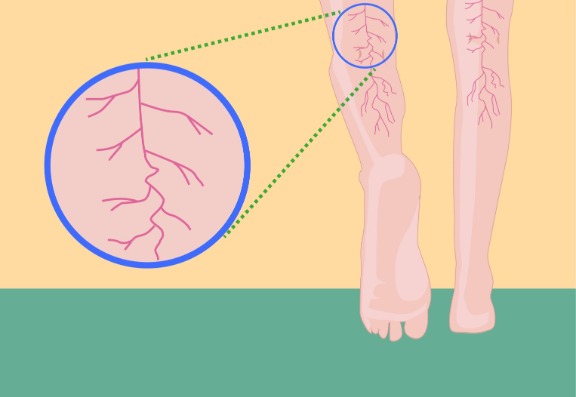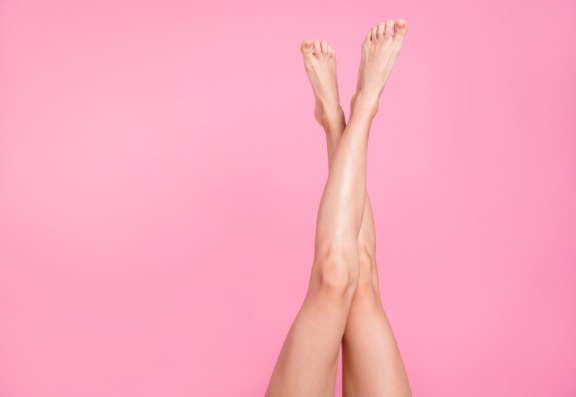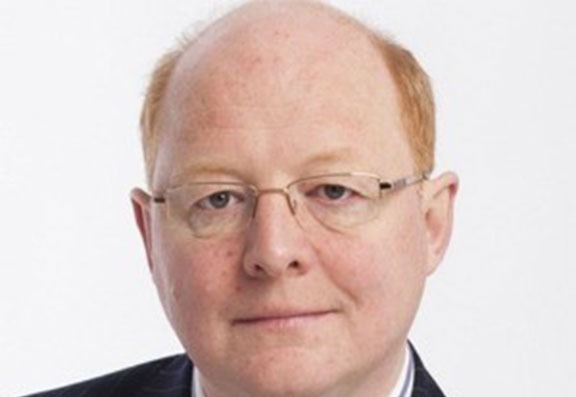Mention varicose veins and the average person will probably assume that it is a relatively trivial problem that causes cosmetic embarrassment rather than anything more serious.
However, varicose veins, which affect 30% of the population, can have significant medical consequences in addition to their cosmetic aspects.
Over the years I’ve treated huge numbers of people affected by varicose veins and seen, time and time again, just how serious they can be.
In the early stages of varicose vein problems, the cosmetic appearance of varicose veins can lead to men and women who have them feeling embarrassed and self-conscious when going out in public, something which can have a detrimental impact on confidence levels in all walks of life.
In later stages, the veins can cause significant pain, aching and discomfort on standing, which can be sufficiently severe to prevent the patient from working properly.
Finally, in severe cases, varicose veins can cause damage to the skin at the ankle and eventual breakdown into an ulcer.
The cause of varicose veins lies in a fault with the valves present in the veins of the leg.
If these valves malfunction, the blood flowing through the leg flows down rather than up.
In the past, the treatment offered has consisted of surgical intervention, with the vein in question actually being stripped out of the leg - an unpleasant operation that took a long time to recover from and had a high rate of recurrence of the veins.

The good news for anyone suffering from varicose veins today, however, is that more modern treatments have evolved, sealing the vein within the leg rather than actually removing it.
The nature of these treatments, delivered via techniques such as EVLT laser, means that they can be applied during a single visit to a clinic or surgery.
What’s more, the minimally invasive nature of the treatment, and the fact that it only requires the use of local anaesthetic in the leg, means that recovery time is much quicker than it used to be. Indeed, I can treat a patient in this manner and then watch them walk away from the appointment and get on with their life.

The very fact that the local anaesthetic has to be delivered to the leg via a syringe is, however, enough to dissuade some people from taking advantage of the treatment.
For patients who are genuinely needle-phobic, the mere thought of an injection is enough to stop them in their tracks, and so the logical progression is for clinicians such as myself to work on even more advanced methods which, being virtually painless, preclude the need for any anaesthetic.
Techniques that I’ve adopted in recent years in response to this need include Clarivein, which uses a chemical and mechanical rotator to seal the vein, and the Sapheon Glue System, based on glue which adheres the walls of the vein to each other.
I was the first practitioner in the UK to test the Clarivein, starting as long ago as 2010. In an article published in the Huffington Post, I outlined the results we achieved using this treatment and detailed the longer-term prognosis gained from monitoring more than 200 of our patients. As I stated in the article:
“There is no doubt that Clarivein can work fantastically well to eliminate major varicose veins – we have had some stunningly good results with it. Doing the operation is virtually painless for patients and it is also very quick to perform. As the technique does not use heat to close the vein, there is no risk of inadvertently damaging sensory nerves next to the vein, which can sometimes happen with other heat-based procedures.”
A problem that I encountered, however, was that larger veins had a higher recurrence rate following the Clarivein treatment than was the case with laser treatments.
Although continuing to monitor results and any other developments, I’m currently of the opinion that Clarivein is suitable for patients with smaller veins, but lacks predictability if applied to patients with larger veins.
In the meantime, an evaluation of the Sapheon Glue system, whilst initially encouraging, is still at a very early stage. Both of these techniques are in the process of evaluation by the National Institute for Clincal Excellence (NICE), while the EVLT laser treatment for varicose veins has been given full approval as the current ‘gold standard' for varicose vein treatment.
If you want to read more, the experts at Consulting Room really know what they're talking about and have put together some Varicose veins, EVLA laser treatment FAQs just for you.
If you have more questions, you can use the Varicose veins, EVLA laser treatment questions feature to talk to our panel of trained medical experts.
If you're keen to get started with any of these treatments right away then you're in luck - those clever folks also have a list of trusted, accredited Varicose veins, EVLA laser treatment clinics in your area.
Many thanks to the author of this blog Eddie Chaloner who is is a Consultant Vascular Surgeon practising in the UK.
Chaloner pioneered endovenous laser surgery treatment for varicose veins in the UK, which has revolutionised the treatment of this common condition worldwide. In 2003 he was the first surgeon in London and the South of England to use laser surgery to treat veins.
He frequently lectures and teaches on the subject of minimally invasive vein surgery and is a faculty member on a variety of training programmes including for theRoyal College of Surgeons of England, the Charing Cross International Vascular Symposium and the Venous Forum of the Royal Society of Medicine. He is also a member of the Vascular Society and of the Royal Society of Medicine.

Halloween is almost here but one thing you shouldn’t feel scared of is having treatment! We spoke to a Dr to get the ultimate guide on what to look out for...
Choosing the right Microsclerotherapy is crucial in treating spider veins, here's what you need to know...
This is everything you need to know about choosing the right Microsclerotherapy Sclerosant in 2024...
Hey, wait!
Before you go.....
Let's stay in touch, pop your details here and we'll send our editor's hand-picked updates on your fave subjects.